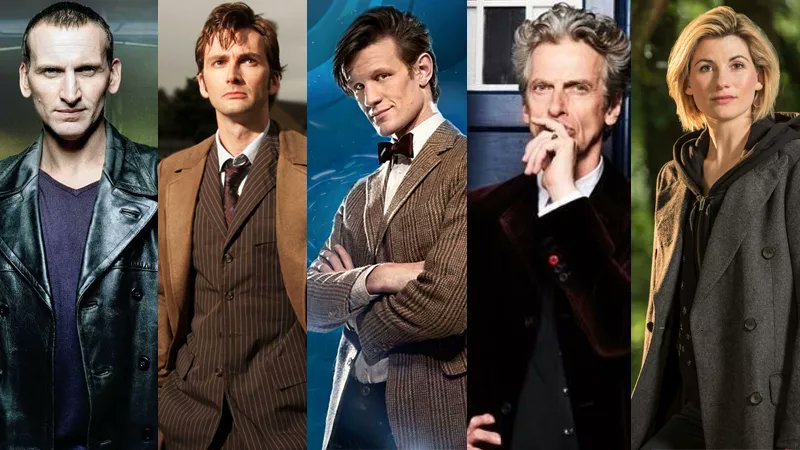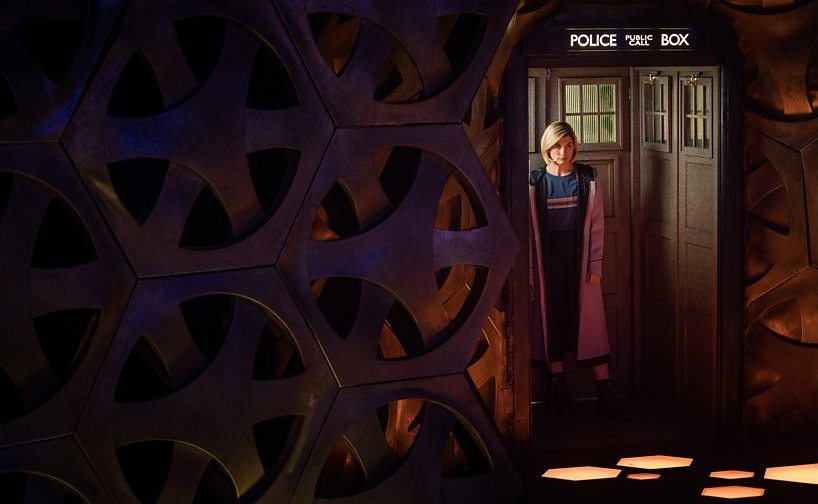The last couple of years in Doctor Who fandom have been a bumpy ride through the time vortex. First off, much to the chagrin of haters everywhere, we finally got a female incarnation of the Doctor and she’s charming and goofy and smart – just as the Doctor should be. Her companions are also quick to think on their feet and learn the ropes. With that said, the writing of Thirteen’s first outing left much to be desired, with only a few of season 11’s episodes feeling like standouts. Even the daleks returning on New Year’s felt old hat (once they finally arrived).
Stateside, Doctor Who fandom has been shifting as well. Three longtime East Coast fan conventions have sputtered out for different reasons: WHOlanta decided to retire on their own terms, Con Kasterborous took a hiatus due to family issues, and RegenerationWho cancelled a week before the con, leaving many congoers in a lurch and waiting on refunds. On top of this, Doctor Who Legacy and AbbyShot both decided not to renew their licenses with the BBC to create Doctor Who products and memorabilia.
Out of the Wilderness
When I jumped on board with the new series in 2005, I really had no idea what I was in for. I’d never been a part of a fandom that had lasted more than a couple of years, much less almost 50. It was daunting. There was an incredible backlog of media to pursue and references to understand. Luckily, Nine’s first and only season as Doctor walked a steady line to acclimate new viewers while finally realizing what older fans felt might never have been possible: seeing the return of Doctor Who on the small screen after years of waiting, wishing, hoping, speculating, and mourning.
Since then, I’ve learned about “the Wilderness Years,” so named for the period between classic Doctor Who ending in 1989 and the modern reincarnation hitting screens in 2005. I’ve also read many a New Adventures novel and listened to many a Big Finish audio adventure to understand how much people truly loved this show and wanted it to stay alive, even if they weren’t tuning in on television. In the Virgin New Adventures novels, the Seventh Doctor continued on his way with new and interesting companions in tow. Over at Big Finish, the Eighth Doctor got his own run of seasons and spinoffs (still in production to this day), which simply wasn’t possible after the Doctor Who movie failed to connect with both British and American audiences.
These efforts also showed me how fandom allowed people to move from being fans of the show to writers and then onto showrunners. This applies to all the modern-day showrunners (Russell T Davies, Steven Moffat and Chris Chibnall). The first two borrowed heavily from the Wilderness Years catalogue when developing their own season arcs and signature style for New Who. Would there have been a Rose Tyler who loved her Doctor without Charley Pollard feeling the same for the Eighth Doctor in the Big Finish adventures? Would there have been a River Song without remolding the concept of Bernice Summerfield for a modern-day audience? Most certainly not. So much of Doctor Who in general is looking at what came before and making it new or fresh in some way while the overarching themes remain: exploration, kindness, understanding, and change.

Change, My Dear, And Not a Moment Too Soon…or Too Late?
While the main theme of Doctor Who is change, I can’t help but wonder if there was too much change too quickly over the past couple of years? Or perhaps fandom reached its peak fever pitch when Matt Smith became the Eleventh Doctor? I remember you couldn’t go to a con in 2010 without metaphorically swimming through a sea of tweed, fezzes and mops. That energy has obviously shifted to long raincoats, rainbow-striped tees, culottes, suspenders and combat boots but things often feel muted. We finally got what many of us have wanted (a female Doctor) but there are still those in the old guard who refuse to accept that the show has moved forward, leaving RIP comments on episode recaps or in forums. And it feels harder to defend an already controversial Doctor when the writing leaves things to be desired, even when the cast is giving its all and elevating the material to the best of their abilities.
Timing is Everything
It doesn’t help that the scheduling of modern Doctor Who seasons remains inconsistent. During the Davies run, it stayed on track until the year of specials leading up to David Tennant’s departure as the Tenth Doctor. Seasons were commonly split during Moffat’s tenure as showrunner. Chibnall tried to make his mark with a New Year’s Day special as opposed to a Christmas episode (a tradition introduced by Davies) but reports suggest it will now return to a proper holiday special in season 12, which won’t air will 2020.
It’s true that Doctor Who fans are accustomed to waiting and a year seems so little compared to 16 of the Wilderness Years. But with so many shifts in fandom, the in-fighting, and the goodbyes or hold ons, I wonder if we’re headed toward another period of modern Wilderness Years – or if we’re already in one. Dealing with the barrage of people hating on a thing they once so desperately loved is draining. Other fans might have been casually interested at best and moved on when their Doctor did. But for those of us who remain, how do we weather this, time and again?
I guess only time will tell.


Comments are closed.